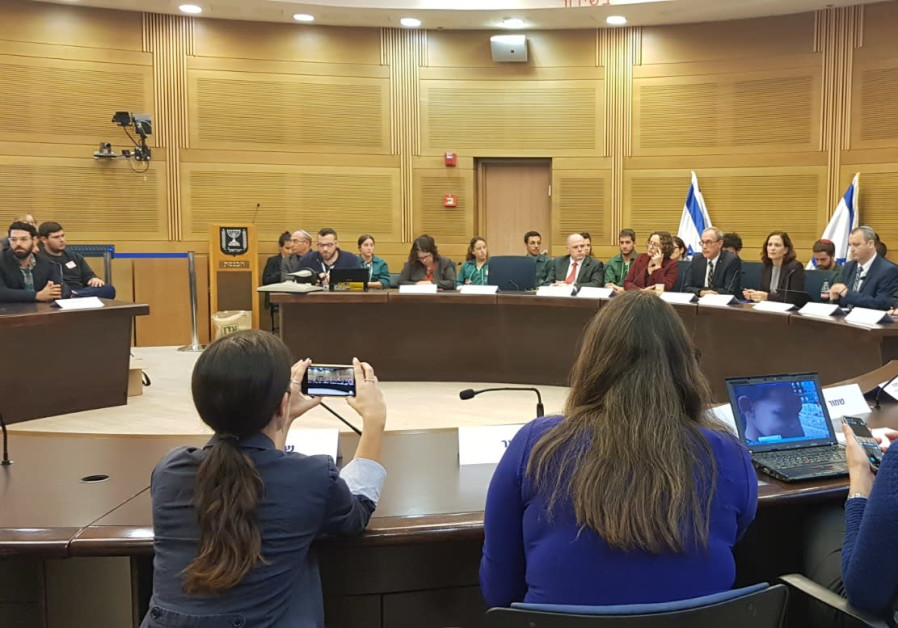Political drama hides a lame duck Knesset

Coalition and opposition MKs debate equality for the progressive Jewish movements in Israel on Wednesday. (photo credit: MASORTI MOVEMENT IN ISRAEL)
The Knesset is often, if not usually, the focal point for Israeli politics. Will this or that controversial bill get passed? Will the Finance Committee approve the funding for a key policy? Did the Likud’s Oren Hazan really say that about another MK?
And so it has been for the past few weeks, with the coalition’s one-seat majority making every vote suspenseful and dramatic. Any vote is a chance for the opposition to rally and have a fairly realistic shot to block the coalition’s efforts.
But behind that veneer of drama and excitement is actually a Knesset that’s not doing much.
The way the Knesset usually works is that government and coalition bills are brought to plenum votes on Mondays and Tuesdays, with the more controversial ones reserved for Mondays. On Wednesdays, private member bills are brought to a preliminary reading, which means that many opposition proposals go to a vote.
Now, with the 61-seat coalition, very few bills come up on Mondays and Tuesdays, and the coalition has to try to make sure to keep the opposition bills at bay on Wednesdays. But even if something goes wrong for the coalition on a Wednesday, it still controls the Knesset House Committee, which can delay placing the bill with a committee, thus blocking any progress for an indefinite amount of time.
In other words, neither the coalition nor the opposition will really be passing any laws in the Knesset under the current political constellation.
Coalition members admitted as much this week. One coalition MK hoped that a bill she had pushed past a preliminary reading would continue to go through the legislative process, but at the same time, didn’t think it would happen anytime soon.
But she also didn’t see it as an impediment to this coalition staying intact.
“So we just won’t pass a lot of laws,” she shrugged in the Knesset cafeteria this week.
One senior cabinet member said that his massive ministry is continuing its business as usual, and aside from being time-consuming, the close calls in the Knesset have no real impact on his work.
The opposition – specifically Zionist Union – may be imploding over the pressure to try to outsmart the coalition, but the coalition has a major advantage in that, unlike the opposition, the Knesset is not all that it has.
There is a lot the ministers can do without the Knesset. Many policies aren’t laws and don’t need any Knesset approval, or only need approval from committees, where there are far fewer votes to wrangle.
Some may crack jokes that it’s good for the Knesset to be semi-inert, because they can do less damage this way. And of course, there is still the parliamentary oversight element of the Knesset, though in Israel’s legislature, bills have always been more heavily emphasized.
But this phenomenon brings up broader questions. There are supposed to be three branches of government, with each having a different job in maintaining Israeli democracy. While the Knesset is the only branch elected by the people, it has long been a weaker link than the government and the judiciary. Public trust in the Knesset is very low, at 27% among Jewish Israelis and 19% among Arab Israelis, according to an Israel Democracy Institute poll from January 2018.
There’s nothing illegal about weakening the Knesset even more, but if it continues like it has so far, with a façade of constant chaos and drama but a reality of stasis and ineffectiveness, the public’s trust won’t rise, and it could damage the balance of powers in our democracy even further.
Join Jerusalem Post Premium Plus now for just $5 and upgrade your experience with an ads-free website and exclusive content. Click here>>






Comments are closed.